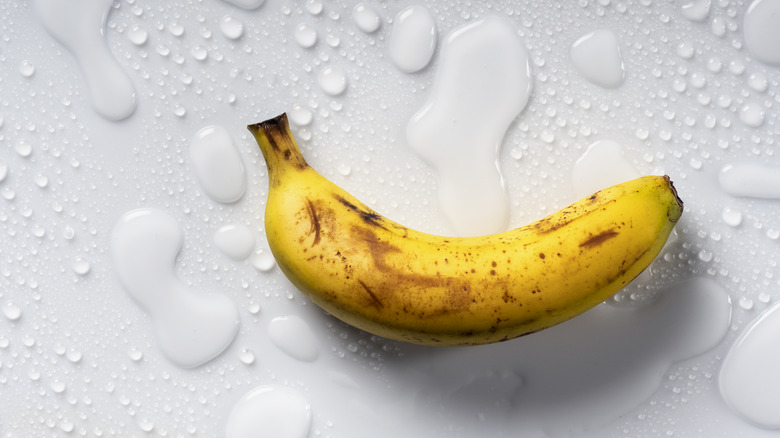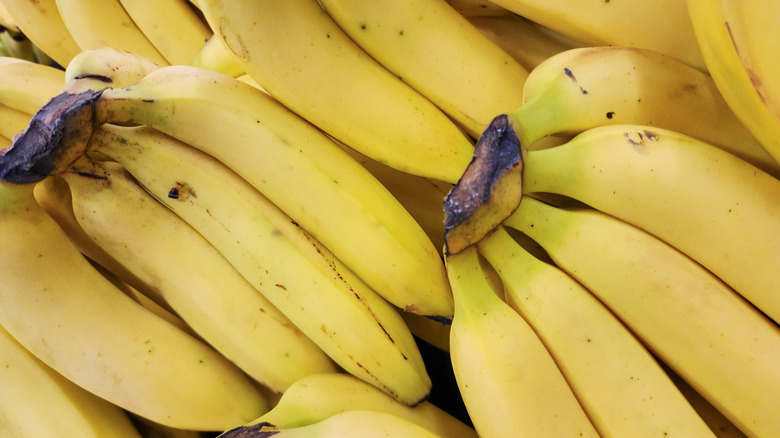Do You Really Need To Wash Your Bananas?
One banana, two banana, three banana, rinse! From grapes and strawberries to blueberries and apples, giving your fresh produce a good scrub is common practice for many home cooks — and for good reason. Fruits and vegetables can carry harmful bacteria and microbes that can cause food-borne illnesses. Plus, your fruit may also come with some built-up dirt and grime on its surface. But what about bananas? It may seem, based on the thick yellow peel, that this fruit wouldn't require washing. After all, the skin of bananas is removed prior to eating it.
However, you may want to rethink this and give your bananas a rinse. Though bananas are peeled (you'll want to save those peels by the way) prior to consumption, the grime on the peel can still contaminate the actual fruit during the peeling or cutting process, which can potentially lead to dangerous bacteria making its way into the part of the fruit that you eat. Not only this, but unwashed bananas can cause fruit flies to gather, and those annoying, flying critters are difficult to get rid of. These flies are often drawn to the yeast found on banana peels, along with the bacteria that is naturally present on the fruit.
Rinsing your bananas
Now, bananas are washed several times before they're put out at the grocery store. However, the fruit may be handled by many people before being put on display, not to mention the potential microbe exposure thanks to other shoppers handling the fruit before it lands in your cart. So, you'll still want to wash the bunches before you eat them. This goes for other fruits with thick skins as well, such as pineapples and melons, and yes even your veggies – which are ripe for contamination. But how do you go about washing your bananas?
The process is pretty simple. You can avoid soaps and detergents. Simply run your bananas under water and brush away any debris from your fruit with your hands. Then, thoroughly dry your fruit with a clean kitchen towel or paper towels. Then, place it in a cool, dry environment. You'll want to make sure not to store your bananas too close to other fruit, as this will speed up decomposition and turn them from ripe to mushy in a matter of days. Though if you are left with brown bananas, you can always make a delicious batch of banana bread.

